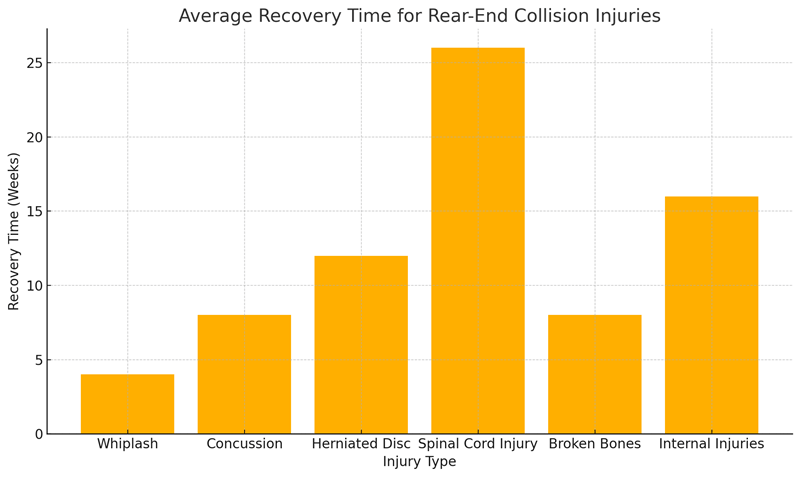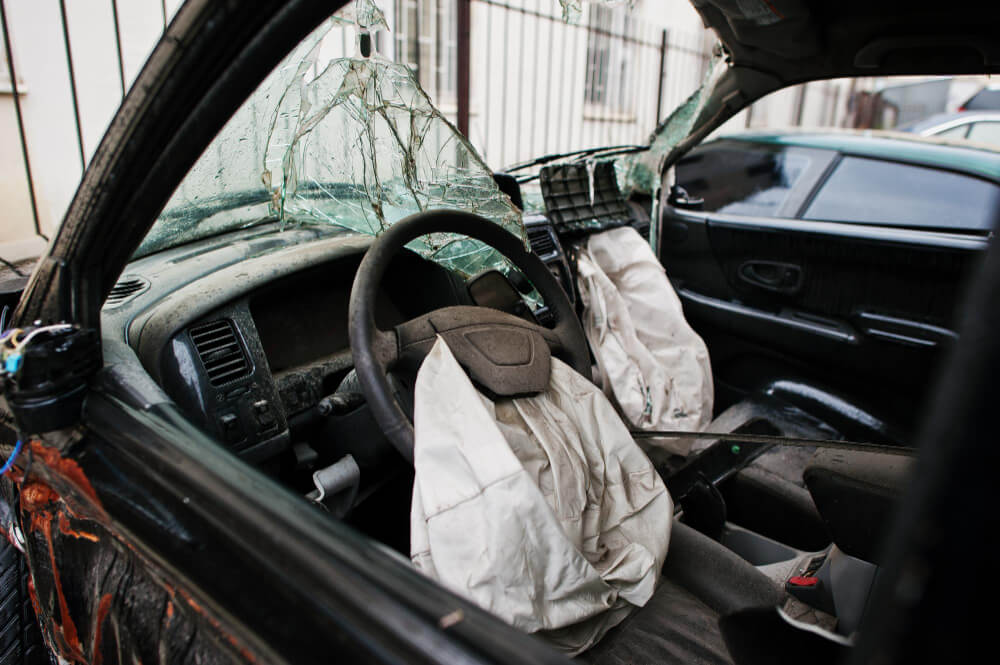Rear-end collisions are among the most common types of car accidents in Florida. Often perceived as minor “fender benders,” these incidents can actually lead to serious injuries, financial strain, and long legal battles. If you’ve been involved in a rear-end collision, it’s critical to understand how fault is determined and what steps you can take to protect your rights.
At Jimenez Law Firm, we’ve helped countless clients across Florida navigate the complexities of personal injury claims arising from rear-end crashes. This article will help you understand who is typically at fault, how liability is determined under Florida law, and how you can build a strong claim for compensation.
What Causes Rear-End Collisions?
Rear-end collisions happen when one vehicle crashes into the back of another. Some of the most common causes include:
- Distracted driving (texting, talking, adjusting GPS)
- Tailgating or following too closely
- Speeding
- Sudden stops
- Poor weather or road conditions
- Drunk or impaired driving
- Mechanical failure (e.g., brake failure)
These accidents can happen in various situations, such as congested highways, intersections, or even in ridesharing environments, where drivers are constantly stopping to pick up or drop off passengers. Learn more about ridesharing accident liability in Florida.
Understanding the exact cause of your accident is crucial for establishing liability and filing a strong rear-end accident claim.
Who Is Typically at Fault in Rear-End Collisions in Florida?
In most cases, the rear driver is presumed to be at fault. Florida law expects drivers to maintain a safe following distance and be prepared to stop. When a rear-end collision occurs, the assumption is that the rear driver failed to do this.
However, this is a rebuttable presumption—meaning the rear driver can challenge it if they can show evidence that the front driver was partially or fully responsible. This is especially important in situations where a front driver’s brake lights weren’t working or the vehicle reversed unexpectedly.
Florida follows a comparative negligence system, which means that both drivers can be found partially liable, and compensation is reduced based on your share of the fault. This makes it even more essential to gather strong evidence and have experienced legal support.
Florida’s No-Fault Insurance Rule
Florida is a no-fault state, which means that after a car accident, your own Personal Injury Protection (PIP) insurance will cover your medical expenses and lost wages, regardless of who caused the crash.
You can explore more about how PIP works by reading our guide on Florida’s No-Fault Insurance System. However, PIP coverage is often not enough—especially in severe collisions.
According to a recent study by the Insurance Institute for Highway Safety (IIHS), rear-seat passengers may actually be more vulnerable in rear-end crashes due to a lack of advanced safety features, highlighting the severity of these incidents.
What Counts as a Serious Injury in Florida?
To file a personal injury claim outside of PIP, your injury must qualify as “serious” under Florida law. This may include:
- Permanent loss of an important bodily function
- Permanent injury
- Significant and permanent scarring
- Death
Meeting the serious injury threshold is necessary to seek compensation for non-economic damages such as pain and suffering or emotional distress. Our team can help assess whether your injury qualifies under Florida’s laws.
Common Injuries in Rear-End Collisions
Rear-end collisions can cause several injuries that may not be immediately apparent, such as:
- Whiplash
- Concussions
- Herniated discs
- Internal bleeding
If you were in a rear-end crash and later developed symptoms like headaches or back pain, it’s crucial to seek medical help. Similar to intersection accidents, the full extent of injuries may not be clear until days or weeks later.
Even so-called “minor” injuries from rear-end collisions can disrupt your life for weeks or months. Understanding the typical recovery time for these injuries highlights the importance of medical care and legal guidance.

Longer recovery times can lead to more medical expenses, lost wages, and emotional distress. The more severe the injury, the stronger the case for stepping outside Florida’s no-fault system and pursuing full compensation.
Steps to Take After a Rear-End Collision
If you’re involved in a rear-end accident, here’s what you should do:
- Call 911
- Seek medical care
- Take photos/videos
- Exchange information
- Talk to witnesses
- Request a police report
- Notify your insurance
- Contact a personal injury attorney
If the other driver leaves the scene, your case may also fall under hit-and-run accident claims, which require swift legal action and detailed evidence collection.
How to Strengthen Your Rear-End Collision Claim
A strong case requires thorough documentation and legal strategy. Consider:
- Keeping detailed medical records
- Avoiding social media activity that could contradict your claims
- Consulting with professionals for accident reconstruction, if needed
It also helps to understand the settlement negotiation process to avoid accepting lowball offers from insurance companies that don’t reflect the full value of your damages.
What Damages Can You Recover?
When your injury qualifies as serious, you may be entitled to a wide range of damages, including:
- Current and future medical costs
- Lost income
- Reduced earning ability
- Pain and emotional suffering
- Therapy or long-term rehab
These damages often apply in other personal injury contexts as well, such as distracted driving cases, where negligence plays a major role in causing harm.
Rear-End Collisions Involving Commercial Vehicles
Rear-end collisions involving trucks or commercial vehicles can be even more complicated. These cases may involve:
- Multiple liable parties
- Larger insurance policies
- Federal trucking regulations
Our team is well-versed in handling commercial vehicle accident claims and will ensure your case is built on a solid legal foundation.
Why Choose Jimenez Law Firm?
At Jimenez Law Firm, we bring dedication, experience, and a proven track record to every personal injury case we handle. Whether your accident involved a small passenger vehicle or a commercial truck, we are committed to fighting for your full and fair compensation.
We’ve successfully represented clients in a wide range of motor vehicle accident cases and understand how to navigate complex insurance and legal landscapes.
Final Thoughts: Know Your Rights After a Rear-End Collision
Rear-end collisions can be more than just a bump in the road—they can result in lasting injuries, emotional trauma, and financial hardship. Knowing your rights and understanding how to build a strong case is essential.
Let Jimenez Law Firm help you pursue the justice and compensation you deserve. Reach out today for a free consultation.
Contact Us
(904) 559-5600
1443 San Marco Blvd. Suite 201, Jacksonville, FL 32207
https://www.jimenez-lawfirm.com/
Frequently Asked Questions
1. Who is usually at fault in a rear-end collision in Florida?
In most cases, the rear driver is presumed to be at fault for not maintaining a safe following distance. However, this presumption can be challenged with evidence showing the front driver acted negligently.
2. Can I sue the other driver in a rear-end collision if I have serious injuries?
Yes. If your injuries meet Florida’s serious injury threshold, you can file a personal injury lawsuit outside the no-fault system to recover full damages.
3. How does Florida’s no-fault insurance affect rear-end accident claims?
Under Florida’s no-fault rule, your PIP coverage will initially pay for your medical bills and lost wages, regardless of who caused the crash. Serious injuries may allow you to pursue further legal action.
4. What kind of compensation can I get after a rear-end accident in Florida?
You may be entitled to compensation for medical expenses, lost income, pain and suffering, emotional distress, property damage, and more—especially if your injuries are long-term or permanent.
5. What should I do immediately after being rear-ended in Florida?
Call 911, seek medical help, document the scene, get witness info, and consult a personal injury attorney to protect your legal rights and build a strong claim.
6. How long do I have to file a rear-end collision lawsuit in Florida?
As of 2023, Florida’s statute of limitations for personal injury cases is two years from the date of the accident. Acting quickly ensures your right to sue is preserved.




